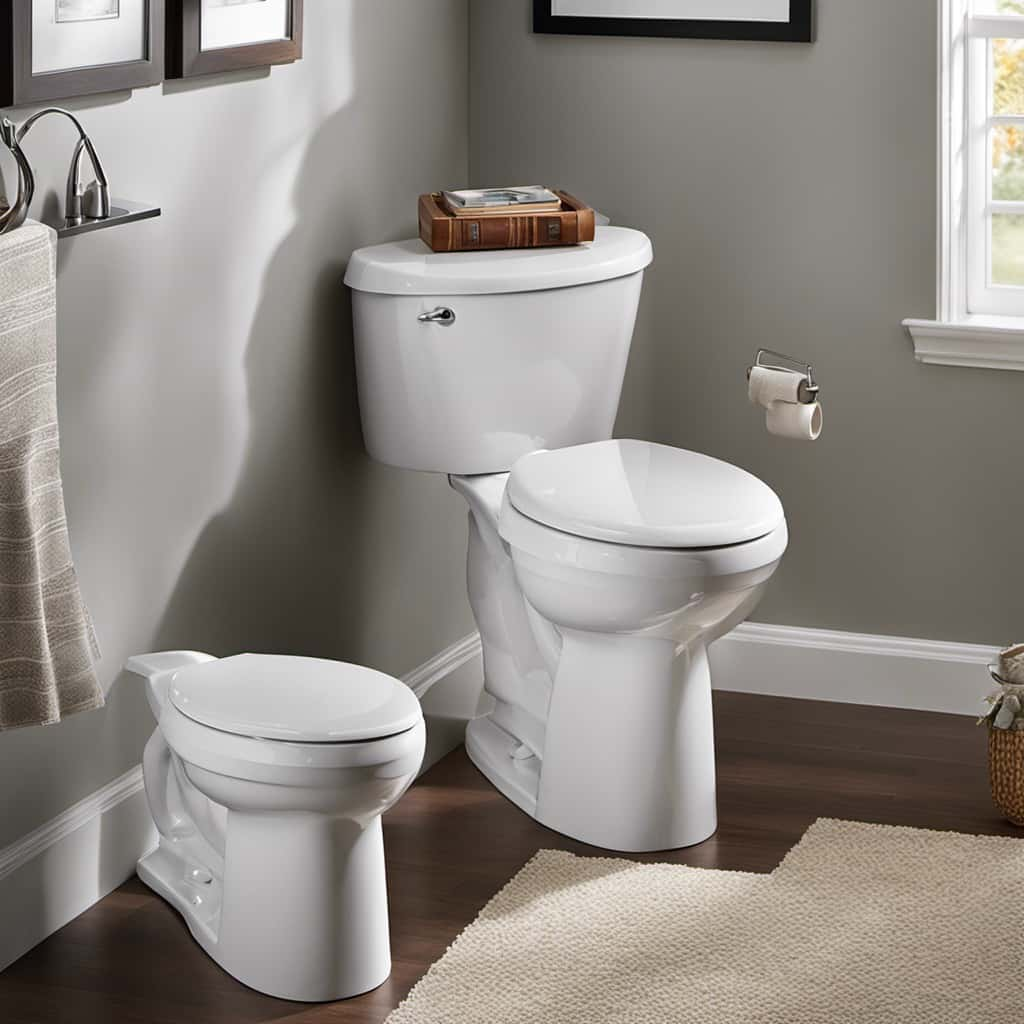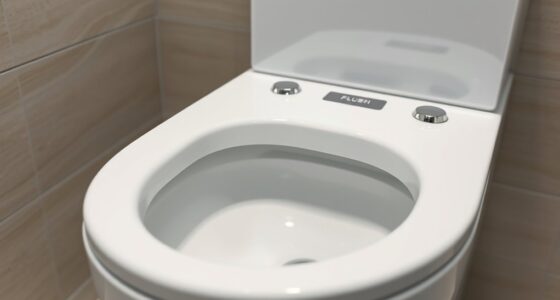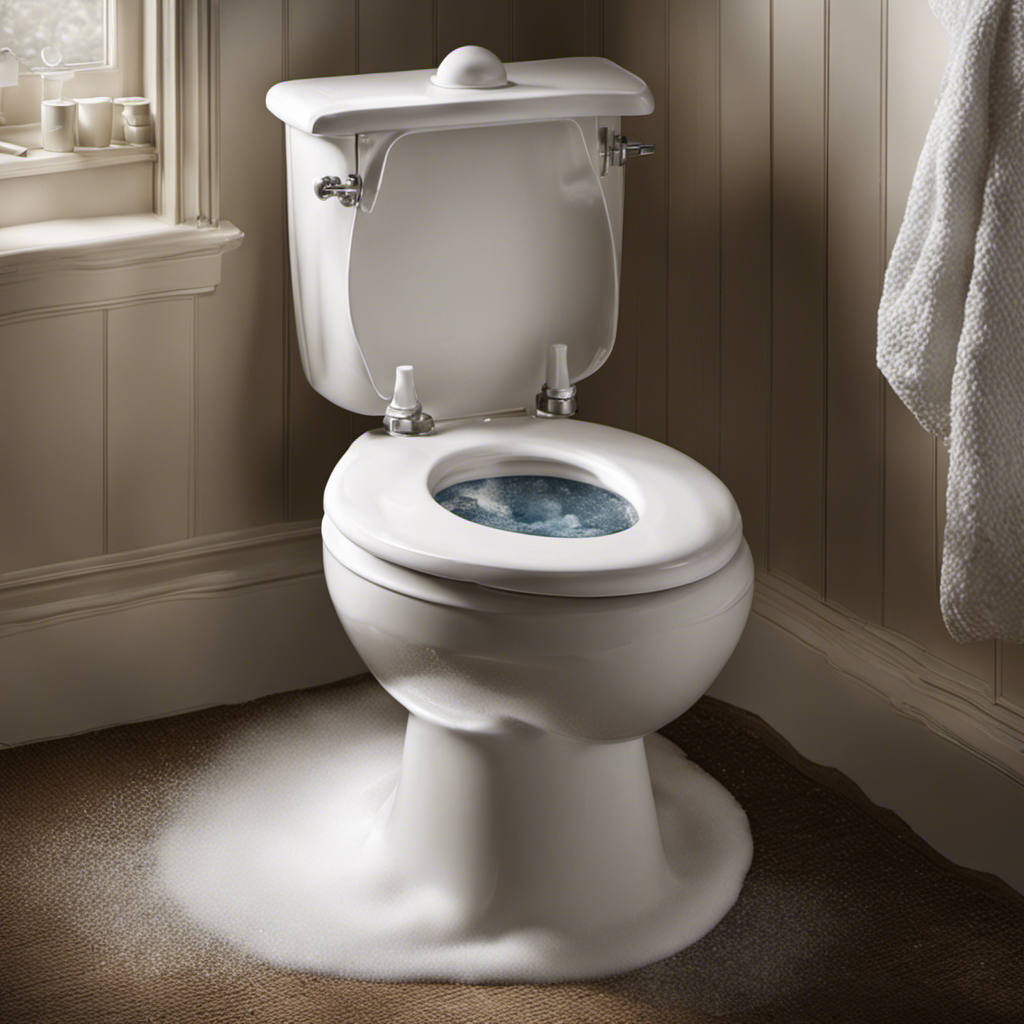Are flushable wipes a better alternative to toilet paper?
Let’s dive into the pros and cons of using flushable wipes instead of traditional toilet paper.
We’ll explore the convenience they offer, the cleanliness factor, environmental concerns, potential health risks, and even compare the costs.
By the end, you’ll have a clearer understanding of whether or not flushable wipes are the right choice for your bathroom routine.
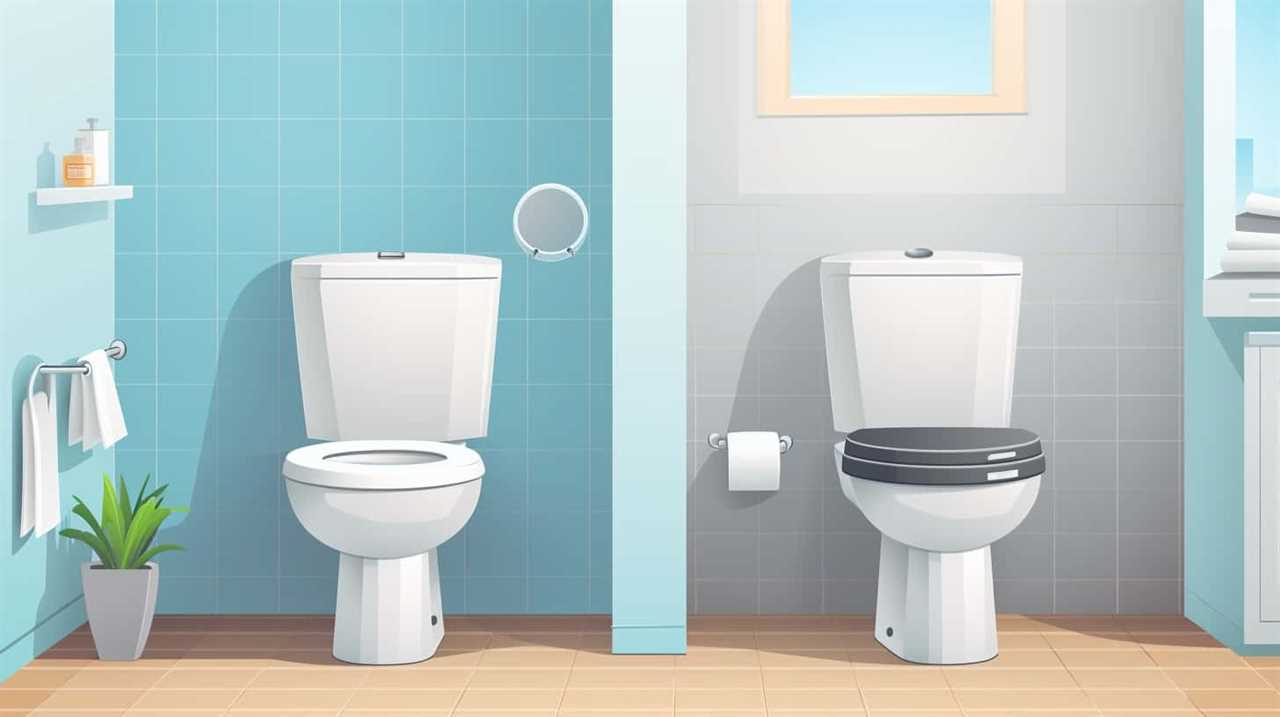
So, let’s roll up our sleeves and get to the bottom of this debate!
Key Takeaways
- Flushable wipes provide a thorough and effective clean compared to toilet paper.
- There are concerns about the biodegradability of flushable wipes, leading to potential environmental issues.
- Flushable wipes can have potential health risks such as skin irritations and disruptions to natural pH balance.
- Toilet paper tends to be a more cost-effective option in the long term compared to flushable wipes.
The Convenience of Flushable Wipes
Using flushable wipes offers the convenience of easily and effectively cleaning ourselves after using the toilet. The practicality and usage scenarios of flushable wipes make them a popular choice for those seeking a thorough clean. Whether it’s for personal hygiene, baby care, or medical needs, flushable wipes provide a practical solution.
When comparing different brands of flushable wipes, it’s important to consider factors such as the thickness, softness, and moisture content. Some brands may offer extra strength for tougher cleaning, while others may be specifically designed for sensitive skin. It’s also essential to ensure that the wipes are truly flushable and won’t cause clogs in the plumbing system.
The Cleanliness Factor
When it comes to maintaining cleanliness in the bathroom, flushable wipes offer an effective alternative to toilet paper. Here are four reasons why flushable wipes can provide superior hygiene benefits compared to traditional toilet paper:
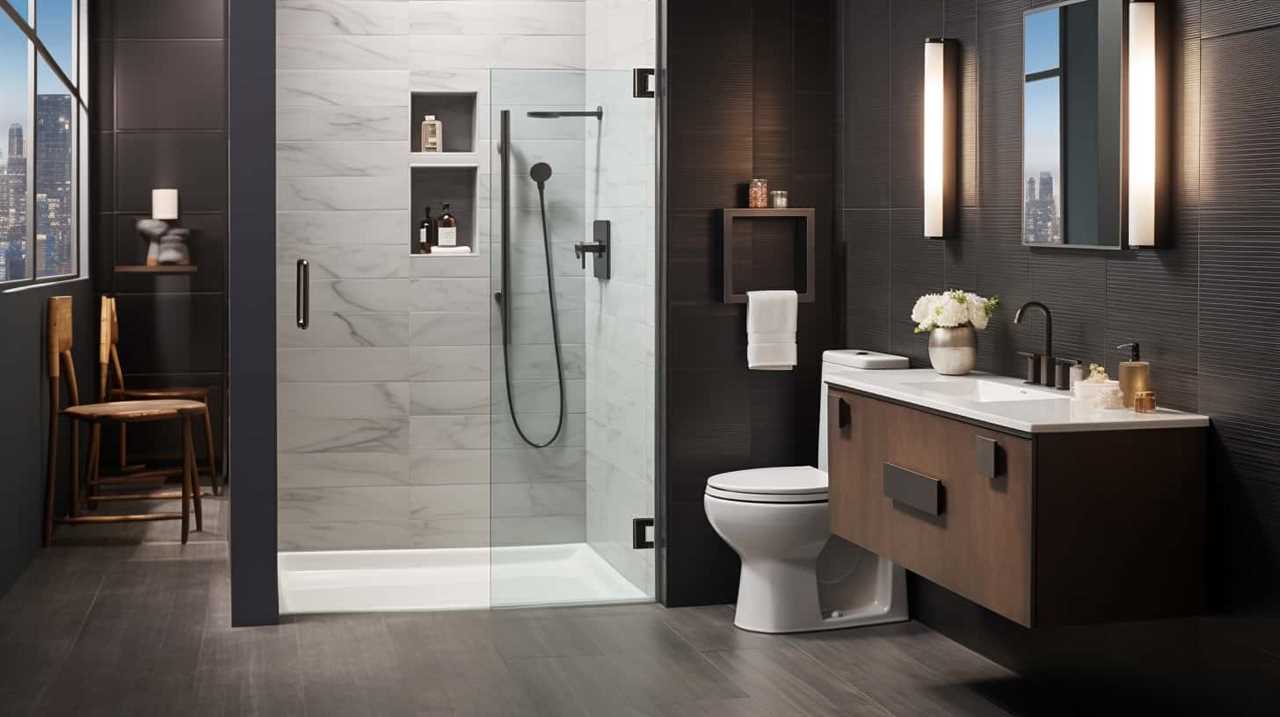
- Moisture: Flushable wipes are moist, which helps to effectively remove bacteria and residue from the skin. This leaves you feeling fresher and cleaner after using the bathroom.
- Thoroughness: Toilet paper can sometimes leave behind traces of waste, leading to potential odor and discomfort. Flushable wipes provide a more thorough clean, ensuring that you feel completely clean and refreshed.
- Gentleness: Flushable wipes are often made with gentle and hypoallergenic materials that are soft on the skin. This can be especially beneficial for individuals with sensitive skin or those prone to irritation.
- Convenience: Flushable wipes are easy to use and dispose of. They come in handy travel packs, making them portable and convenient for use outside of the home.
Environmental Concerns Surrounding Flushable Wipes
As we continue discussing the cleanliness benefits of flushable wipes, it’s important to address the environmental concerns surrounding their use.
One major concern is the biodegradability of these wipes. While they may be marketed as flushable, they often don’t break down as easily as toilet paper. This can lead to issues in sewage systems, as the wipes can clog pipes and cause blockages. In fact, many wastewater treatment plants have reported problems with flushable wipes causing equipment malfunctions and increased maintenance costs.
Additionally, these wipes can also contribute to the formation of fatbergs, which are large masses of congealed fat, oil, and non-biodegradable materials that clog sewer systems.
Therefore, it’s important to consider the potential impact on sewage systems and the environment before using flushable wipes.
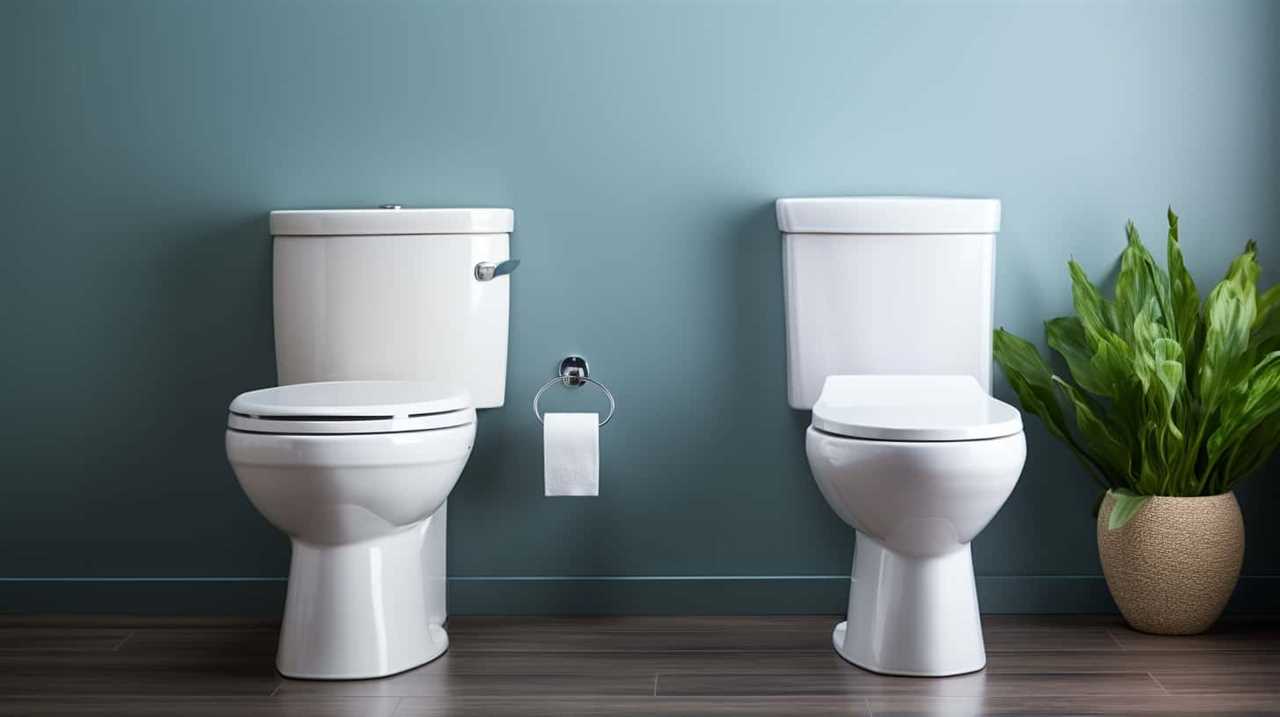
Potential Health Risks Associated With Flushable Wipes
Moving on to the potential health risks associated with flushable wipes, we need to consider the impact they can have on our well-being. Here are four key points to keep in mind:
- Potential skin irritations: Flushable wipes often contain chemicals and fragrances that can cause skin irritations, especially for individuals with sensitive skin. These irritations can range from mild redness and itching to more severe allergic reactions.
- Disruption of natural pH balance: The use of flushable wipes can disrupt the natural pH balance of the genital area, leading to discomfort and an increased risk of infections such as yeast infections or urinary tract infections.
- Impact on sewage systems: Despite being marketed as ‘flushable,’ these wipes often don’t disintegrate in water as easily as toilet paper does. This can result in clogged pipes, sewer backups, and costly repairs for homeowners and municipalities.
- Environmental concerns: The production and disposal of flushable wipes contribute to environmental issues, including pollution and the accumulation of non-biodegradable materials in landfills.
Considering these potential health risks and environmental concerns, it’s important to weigh the pros and cons before deciding on using flushable wipes or sticking to traditional toilet paper.
Moving on to the next section, let’s examine the cost comparison between flushable wipes and toilet paper.
Cost Comparison: Flushable Wipes Vs Toilet Paper
To determine which option is more cost-effective, let’s compare the prices of flushable wipes and toilet paper. When it comes to long term savings, toilet paper tends to be the more economical choice. Flushable wipes are generally more expensive, especially if you use them on a regular basis. While the initial cost of flushable wipes may not seem significant, the expenses can add up over time. On the other hand, toilet paper is readily available and typically much cheaper.
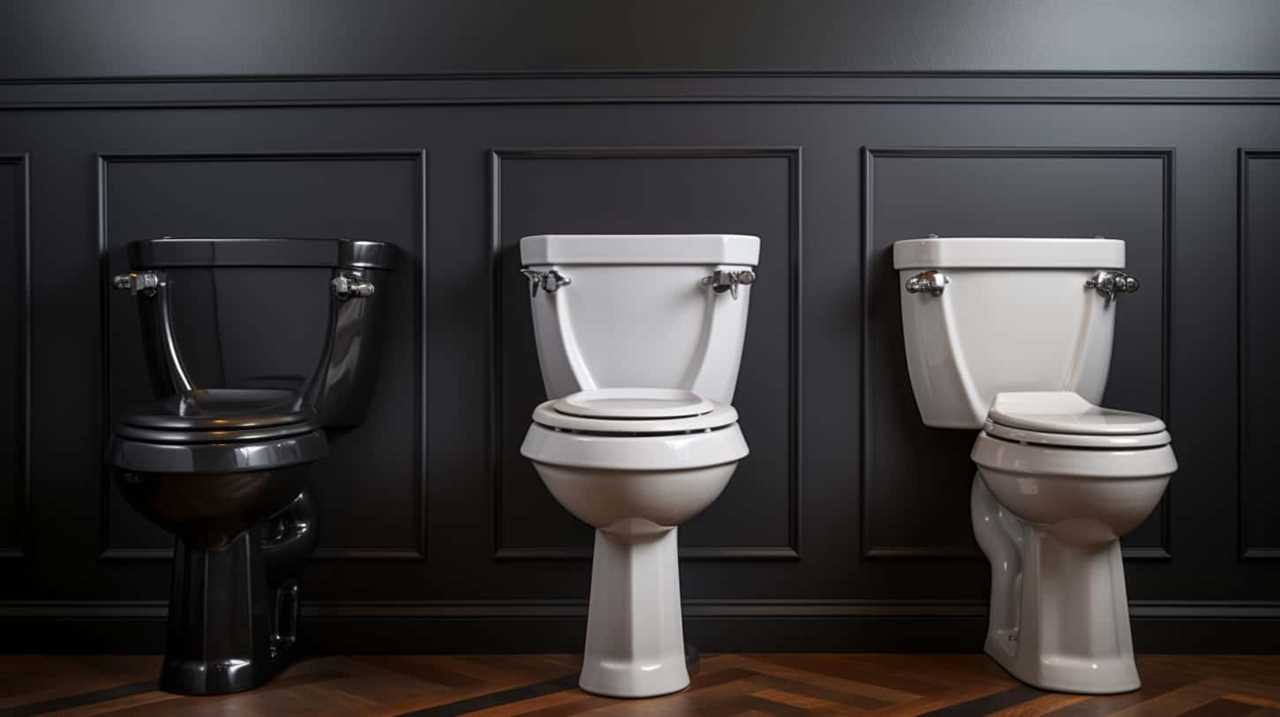
In terms of effectiveness, both flushable wipes and toilet paper serve the purpose of cleaning after using the toilet. However, flushable wipes are often considered to be more thorough and provide a fresher feeling. Toilet paper, although less effective in terms of cleanliness, is still a widely used and accepted option. Ultimately, the choice between flushable wipes and toilet paper depends on personal preference, budget, and individual needs. If cost is a major consideration, sticking with toilet paper may be the more practical choice in the long run.
Frequently Asked Questions
Are Flushable Wipes Safe to Use for Septic Systems?
Flushable wipes are safe for septic systems, but their impact on the environment is a concern. They can be used on sensitive skin, but be cautious of any potential irritation.
Can Flushable Wipes Cause Clogs or Blockages in the Plumbing System?
Flushable wipes can cause clogs or blockages in the plumbing system. While they may be more effective than toilet paper, their impact on the environment is a concern. It’s important to consider both factors before deciding.
Are There Any Specific Brands of Flushable Wipes That Are More Environmentally Friendly?
There are several eco-friendly flushable wipe brands available as alternatives to traditional toilet paper. These brands prioritize sustainability without compromising on functionality. It’s important to research and choose a brand that meets your specific needs and values.
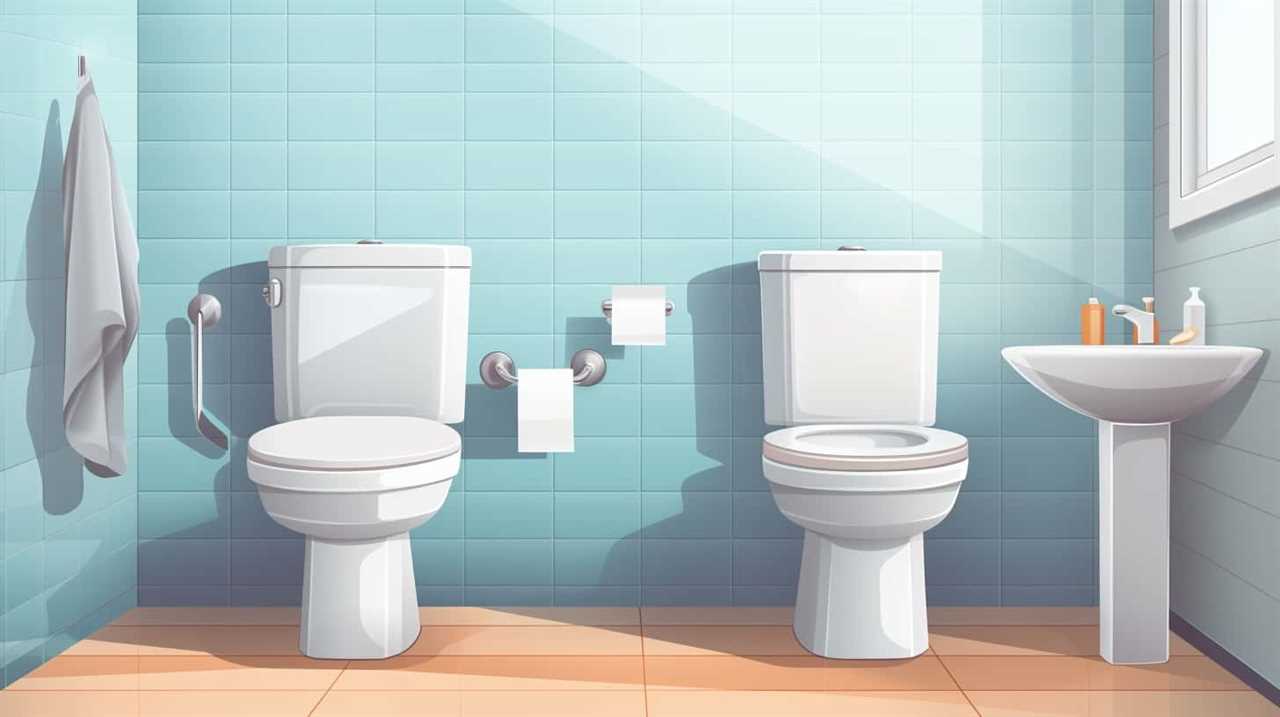
Can Using Flushable Wipes Lead to Skin Irritation or Allergic Reactions?
Using flushable wipes instead of toilet paper may seem like a convenient choice, but be cautious. These wipes, especially those designed for sensitive skin like baby wipes, can potentially cause skin irritation and allergic reactions. Additionally, there is a risk of bacterial infections.
How Do the Costs of Using Flushable Wipes Compare to Using Regular Toilet Paper in the Long Run?
When considering cost effectiveness and environmental impact, it is important to compare the long-term costs of using flushable wipes versus regular toilet paper. This analysis will provide valuable insights for making an informed decision.
Conclusion
In conclusion, while flushable wipes may offer convenience and a perceived sense of cleanliness, it’s important to consider the environmental impact and potential health risks associated with their use.
Toilet paper remains a more cost-effective and environmentally-friendly option.
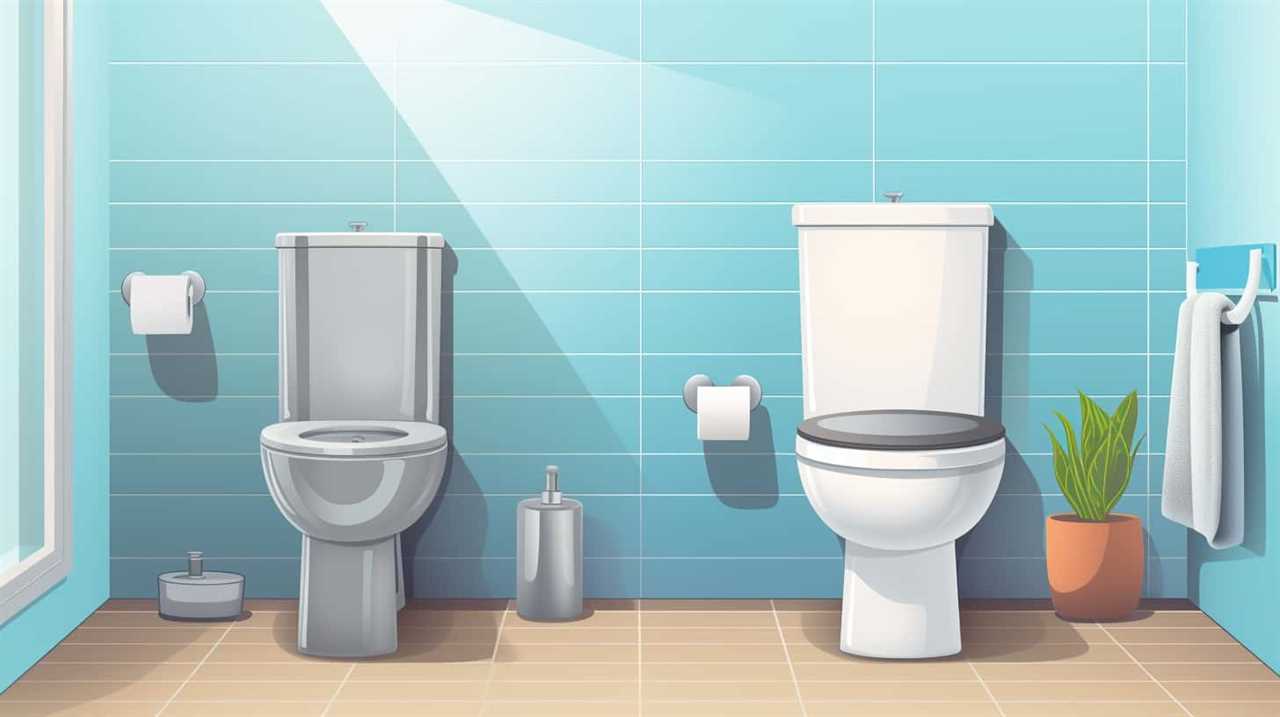
Ultimately, the choice between flushable wipes and toilet paper depends on personal preference and priorities.
